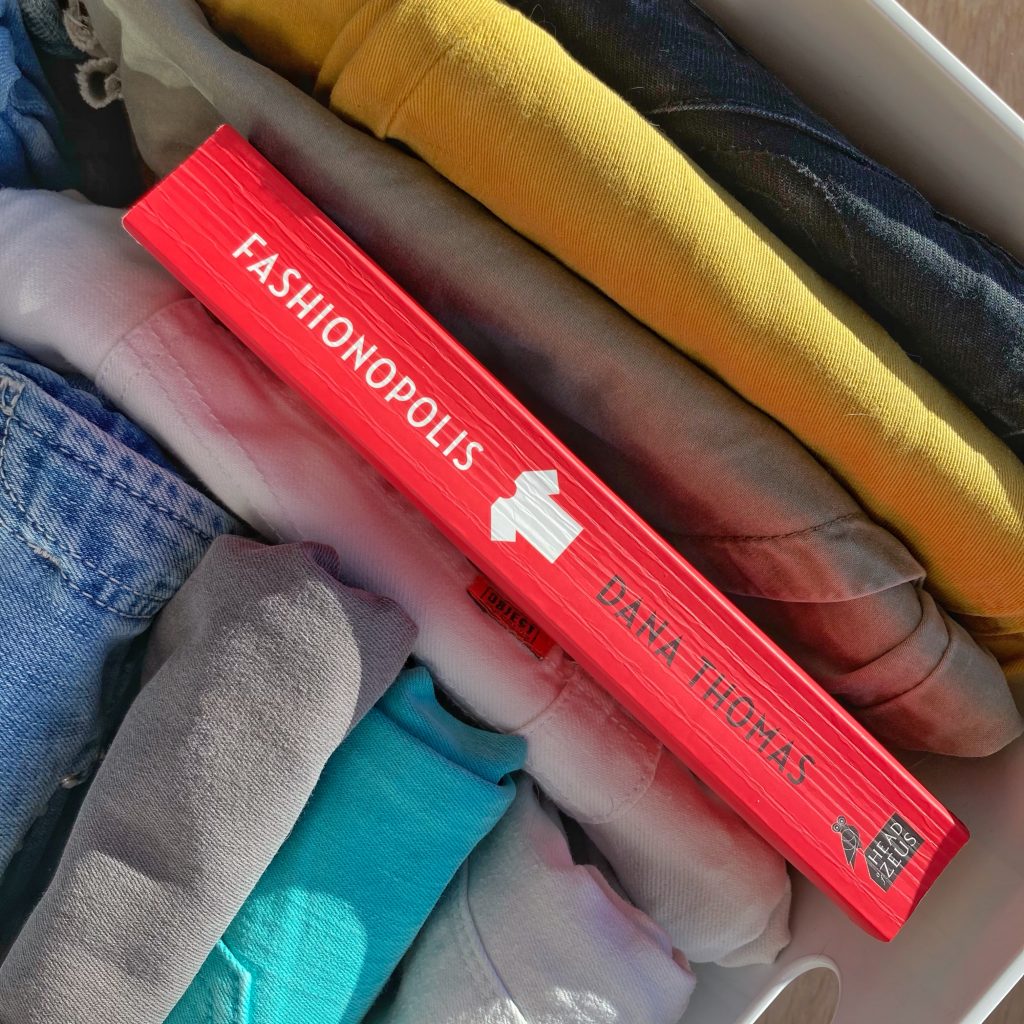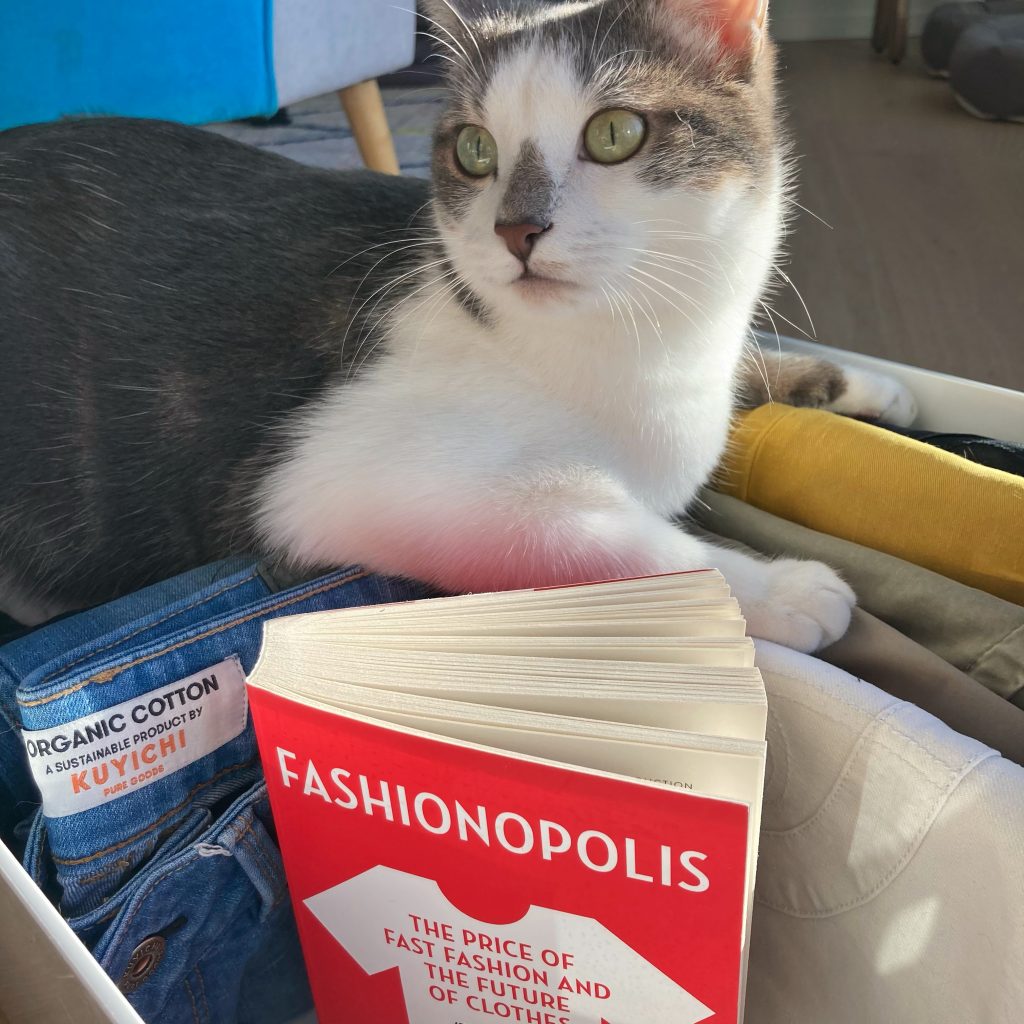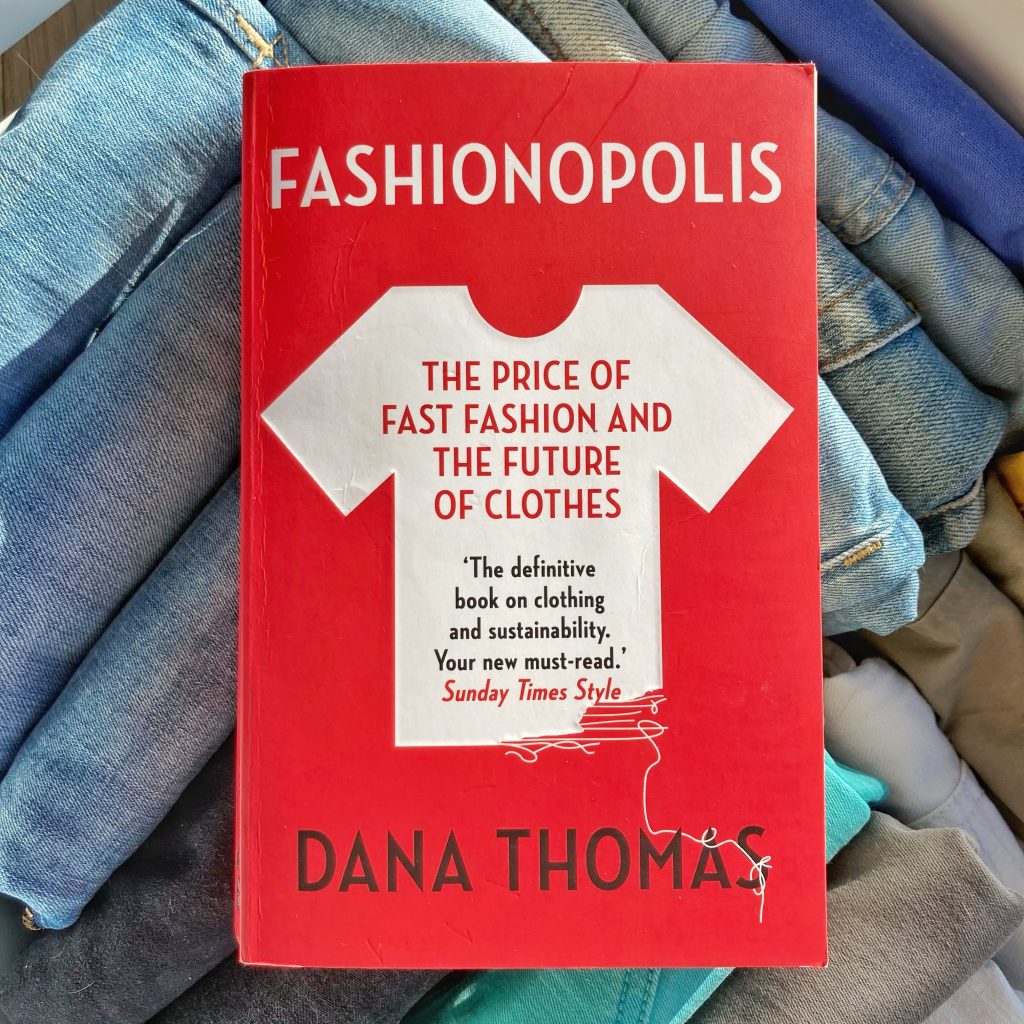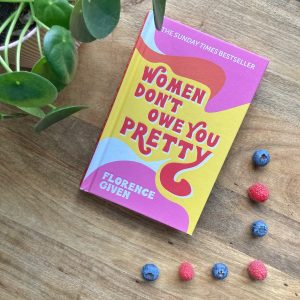all in all, fashionopolis by dana thomas is an informative, well researched and compelling read that covers past, present and future of the garment industry with a special focus on sustainability.
i have never been a shopping queen myself.
on the contrary, shopping clothes is one of those activities that make me feel self-conscious and somehow uncomfortable in my own skin.
and yet before my marie kondo inspired declutters and current minimalistic ways, i used to own a ton of clothes.
how? i don’t know.
after reading fashionopolis by dana thomas, however, i begin to have an idea.
what fashionopolis it about
part one of the book explores how humankind went from making their own clothes to present day disaster that is fast fashion.
in part two, thomas covers initiatives, brands and products that go a different way and aspire to produce fair, sustainable and ethical clothes,
whereas in part three she dives deeper into new, innovative ways that could how we produce, buy and generally deal with clothes in the future.
the dilemma
one thing is very clear : dana thomas is a great lover of fashion.
one can just sense her fascination in the way she writes about clothes, the interactions she reports with the experts she chose to interview and the detailed research and knowledge, she twines into her storytelling.
however, one can also sense her deep concerns with the industry in general, be that conditions for garment workers on at least three continents, its impact on the environment or the end consumers’ physical health.
in that she reflects the dilemma all socially responsible people face across the globe.
or rather, the challenge to put together a wardrobe that fits one life, lifestyle and values.
a challenge that at the same time becomes more and more a personal responsibility.

no good alternatives?
and so, she scoured the globe to find alternatives that could become the future of fashion.
some of which could be economically viable.
others are scientifically ingenious and some are at best just downright idealistic at this point.
and idealism seems more important than ever.
because the multi-billion industry that fashion, and more specifically fast fashion, has become doesn’t sleep.
after the disaster that was the collapse of rana plaza in 2013, most of the giants have woken up and added some ‘green’ to their brand.
what didn’t change, however, is the business model of ‘always more’, of wastefulness and corporate greed.
just think black friday.
not that wanting to earn profits is a bad thing as such, the question is rather how far you are willing to go at the expense of others to accomplish this?
how about the present?
while thomas draws a canvas of hope for the future, after reading fashionopolis, i am wondering more than ever about the present.
maybe one day fabric and other materials can be sourced responsibly, clothes can be recycled, waste cut down to zero, but what does that leave us with today?
it’s a question thomas addresses almost only as an afterthought.
maybe that’s where her love for fashion and clothes inadvertently comes in the way of her quest for sustainability.
yes, buying second hand and even renting clothes was discussed.
but the large majority of her writing remains in a consumer-oriented mindset of adding clothes to your wardrobe.
no matter how innovative or futuristic the solutions, as long as people buy, consume and dispose of clothes the way they do now, the problem will remain.
or is it me?
am i so ingrained in my spartan ways that i have completely given up on the joy that fashion can bring?
an activist’s sanity
i remain somewhat reassured by the many fair fashion brands and stores that seem to mushroom left and right in the activist filter bubble that is my instagram feed.

as well as the groups that promote buying less, but better quality clothes.
or buying them second hand, repairing them to get the most use out of them or even making them oneself.
specifically in the wake of black friday and the consumer giga events these commercial holidays have become, this comforts me.
but i also worry.
about the many, many people that still rush on this treadmill of cheap consumer thrills, who use retail as therapy.
even more so in times of global pandemic.
i worry about the balance of it all.
and i guess, at the end of the day, this is why fashionopolis is so important.
written by a fashion lover, it almost feels as if the question of social responsibility was not asked by a group of fringe idealists trying to change the world, but from the inside.
and even more importantly, in the process of being answered from the inside.
feedback
now, it’s up to you.
have you read the 4-hour workweek?
if so, do you agree with my sentiment?
if not, did this review help you to make a choice whether you should read it or not?
please let me know in the comments.
idealistically yours,
the simps














